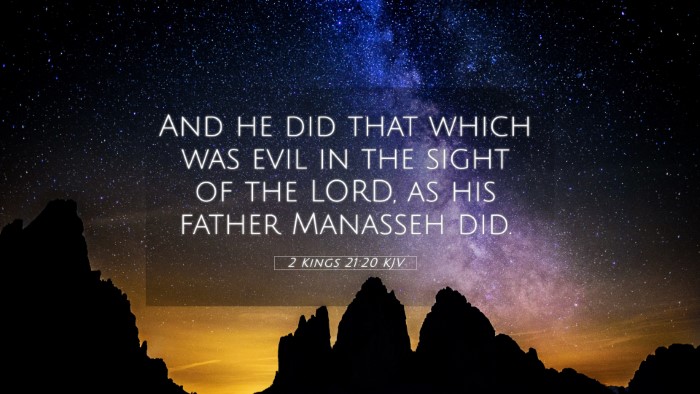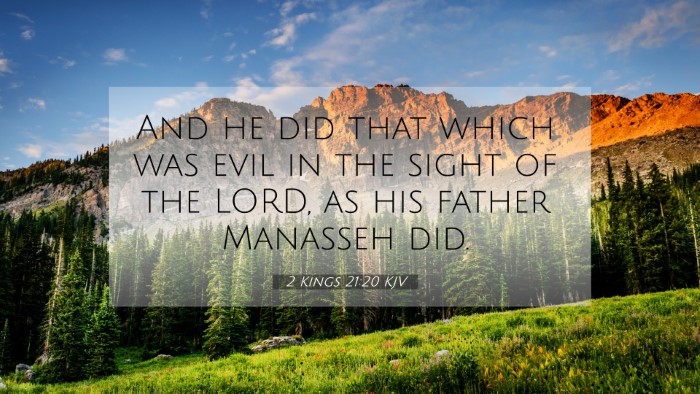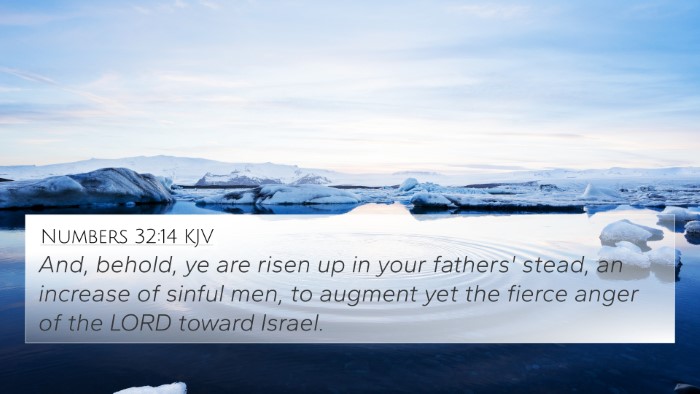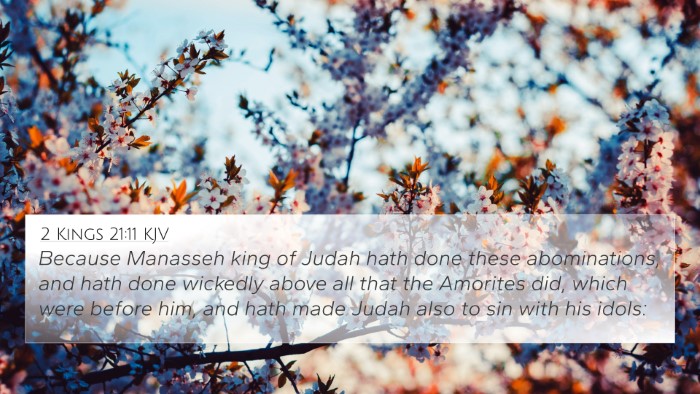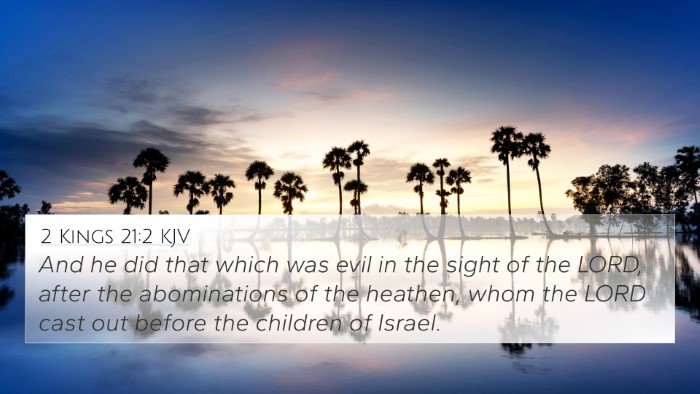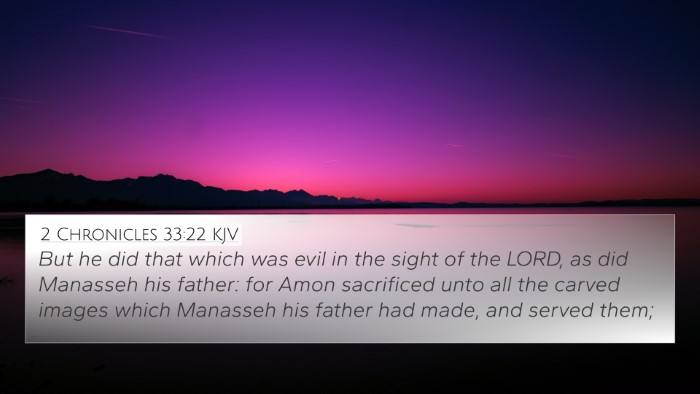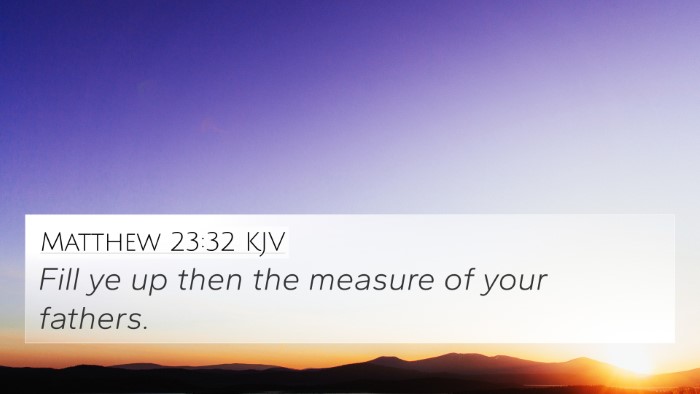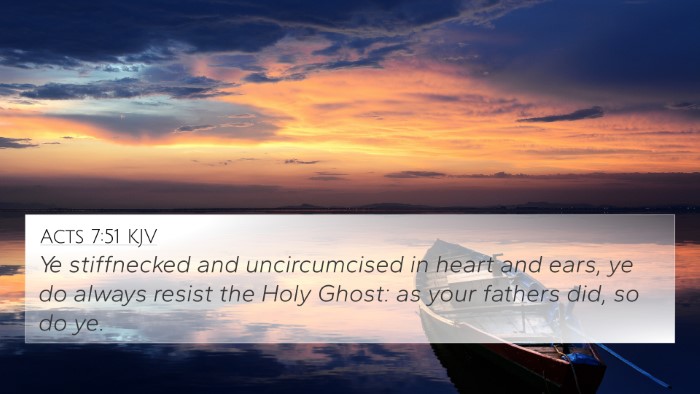Old Testament
Genesis Exodus Leviticus Numbers Deuteronomy Joshua Judges Ruth 1 Samuel 2 Samuel 1 Kings 2 Kings 1 Chronicles 2 Chronicles Ezra Nehemiah Esther Job Psalms Proverbs Ecclesiastes Song of Solomon Isaiah Jeremiah Lamentations Ezekiel Daniel Hosea Joel Amos Obadiah Jonah Micah Nahum Habakkuk Zephaniah Haggai Zechariah MalachiVerse
2 Kings 21:1 2 Kings 21:2 2 Kings 21:3 2 Kings 21:4 2 Kings 21:5 2 Kings 21:6 2 Kings 21:7 2 Kings 21:8 2 Kings 21:9 2 Kings 21:10 2 Kings 21:11 2 Kings 21:12 2 Kings 21:13 2 Kings 21:14 2 Kings 21:15 2 Kings 21:16 2 Kings 21:17 2 Kings 21:18 2 Kings 21:19 2 Kings 21:20 2 Kings 21:21 2 Kings 21:22 2 Kings 21:23 2 Kings 21:24 2 Kings 21:25 2 Kings 21:26
